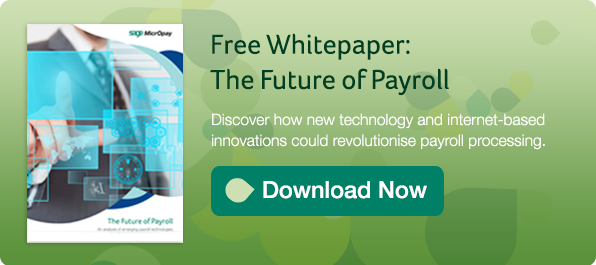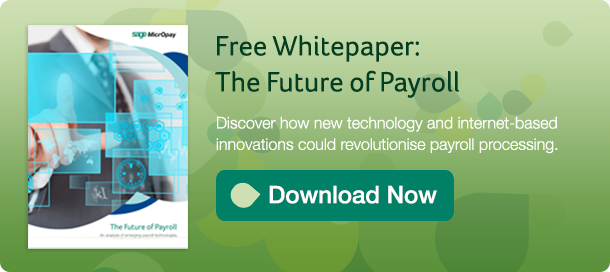 Outsourcing payroll processing to an external provider still remains a very popular method among businesses of ensuring this critical function is completed effectively. As a result, there is currently a multitude of payroll outsourcing organisations available, each with their own strengths and weaknesses.
Outsourcing payroll processing to an external provider still remains a very popular method among businesses of ensuring this critical function is completed effectively. As a result, there is currently a multitude of payroll outsourcing organisations available, each with their own strengths and weaknesses.
Choosing the right provider for your business is an important process and many find that a thorough examination of your short-listed payroll outsourcing bureaus pays dividends in the long run. To help you during this stage, we have composed 5 questions below that should be asked to all candidates to ensure there are no hidden surprises once your choice has been made.
Do you charge for every payroll change made?
An organisation’s workforce is constantly changing, from adding new employees, to changing salaries, contact details and bank accounts of current staff, to terminations. One of the consequences of this reality is the subsequent alterations that need to be made to the payroll to reflect these changes.
Bearing in mind the amount of modifications that could accumulate during the space of one pay period, discovering how each payroll outsourcing service charges for these adjustments often proves to be a prudent decision. This is especially true for those organisations with a higher number of employees, which obviously results in more changes being necessary from week to week.
What reporting options do you offer?
Every business is different and accordingly each has its own unique set of requirements. This also applies to payroll reporting, where all organisations have their own individual needs, typically including both standard reports plus more advanced, personalised versions.
It is important that you clearly understand how each payroll outsourcing provider structures their report offerings and what options are available to you. Knowing exactly which reports are included with your monthly fee and also what others are available along with their cost will help you to discover whether your company’s reporting requirements will be met cost-effectively or not.
Are there penalties for cancelling the agreement?
Unfortunately businesses can sometimes make the wrong decision and find themselves with payroll outsourcing providers that aren’t meeting their needs. The problem can also be compounded by the company being locked into a long-term contract with heavy penalties for early termination.
To avoid the possibility of falling into this situation, it is always a prudent course of action to ask all prospective payroll outsourcing providers what the terms of their service agreements are. Enquiries should also be made about whether there are any break costs if you decide to end your association with the provider earlier than expected.
Finding an outsourcing organisation that provides flexible terms has many benefits. Not only does it obviously empower your company with the freedom to change your payroll outsourcing service whenever you like, it also ensures that your bureau will work harder to retain your business.
What are your disaster recovery capabilities?
Will your payroll data be protected in the event of a disaster? It is imperative for all businesses to ensure their employees continue to be paid no matter what adverse events the future brings.
Finding out what resources and business continuity plans a payroll outsourcing provider has in place should a disaster occur provides you with the knowledge that your business is safeguarded in the future, putting your mind at ease. It can also prove useful to learn what your responsibilities are in the disaster recovery process, allowing you to be completely prepared if the time comes.
What are the response times to customer enquiries?
One of the most important aspects of the relationship between a company and the bureau that processes its payroll is how enquiries are handled. No matter which outsourcing provider you choose, enquiries relating to your payroll will inevitably arise that you will need answered in a prompt fashion.
Discovering how these queries will be dealt with and defining a clear understanding of service levels and response times with a provider will help to ensure that you aren’t left in the dark wondering what is happening with your enquiries. It can also be a wise decision to find out exactly who will be responsible for fielding questions relating to your payroll. Is it the actual person processing your payroll or is a call centre approach used to field all questions? Many businesses often prefer a more personalised approach so identifying this can have a large bearing on their final decision.










 Recently, the Fair Work Amendment Bill 2012 was officially passed by the Australian Senate and now awaits royal assent when it will formally be made a law. The Bill includes a number of amendments to the Fair Work Act 2009, many of them technical, recommended by the independent Fair Work Act Review along with numerous other stakeholders.
Recently, the Fair Work Amendment Bill 2012 was officially passed by the Australian Senate and now awaits royal assent when it will formally be made a law. The Bill includes a number of amendments to the Fair Work Act 2009, many of them technical, recommended by the independent Fair Work Act Review along with numerous other stakeholders. Sage MicrOpay are excited to announce that we have just opened a brand new office and training facility in the heart of Brisbane at West End. These new premises will help us to provide businesses based in Queensland with a premium level of service and support.
Sage MicrOpay are excited to announce that we have just opened a brand new office and training facility in the heart of Brisbane at West End. These new premises will help us to provide businesses based in Queensland with a premium level of service and support.